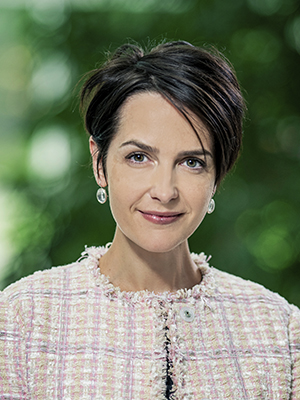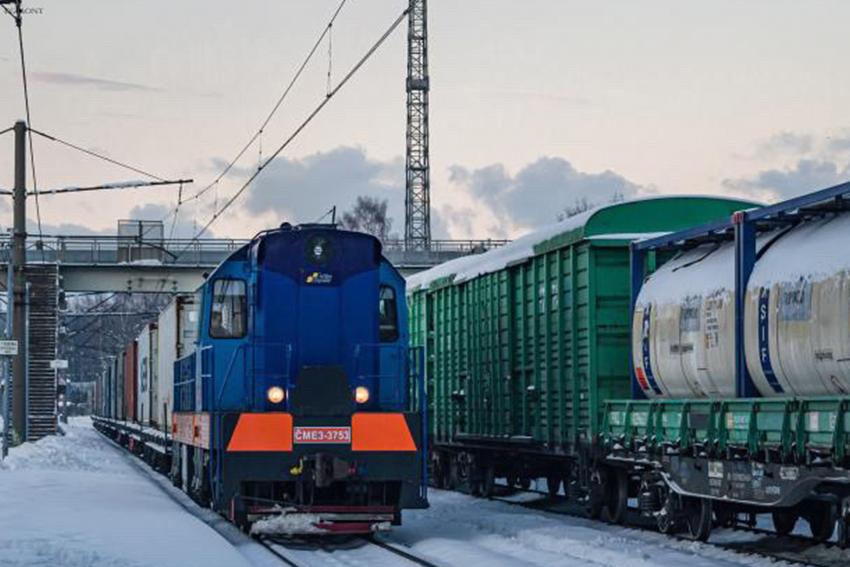As of the beginning of December, a regular container train or a ”shuttle train“ has commenced operations between the two terminals in the Freeport of Riga – “Rīgas universālais terminālis” (RUT) and “Baltic Container Terminal” (BCT), providing faster and safer delivery of containers to the vessels docked at the terminals. Thus, not only the movement of freight in the port territory has been improved, but also terminal infrastructure, port motorways and city streets are relieved from road transport, which is very important for neighborhoods adjacent to the port as well as for other residents of Riga.
The transportation is provided by “Baltijas Ekspresis”, the largest private rail freight carrier in the Baltics in cooperation with the port companies Jaunzeltiņi, RUT and BCT.
Previously, containers between the terminals were solely transported via roads, significantly adding pressure to the city streets, port motorways, and terminal infrastructure. The new "shuttle train" project is an important event for the Port of Riga - for the first time an alternative solution for road transport has been developed, with the aim of connecting the two largest and busiest terminals of the port. The introduction of regular train services offers a reliable solution for port clients - freight forwarders, container owners, and shipping lines - to promptly, conveniently, and reliably deliver their consignments to vessels at the port terminals
Furthermore, the consistent flow of containers between the two parts of the city will notably alleviate truck traffic, congestion and CO2 emissions. Residents of the city who use Ganibu Dambis in their daily routine or live near Vecmilgravis will be able to assess the positive impact. “This project is a good example of how rail transport is able to compete with road transport, moving cargo more efficiently, as well as in a more environmentally and people-friendly way,” emphasized Māris Bremze, Chairman of the Board of “Baltijas Ekspresis”.
Ansis Zeltiņš, the Freeport of Riga CEO, has noted that “the volume of cargo transported by road to and from the Port of Riga has grown significantly in recent years.” Five years ago about 33% of the port cargo was transported by road, now this volume has increased to 68%. Increasing road transport flows create increased load on the port and Riga motorways, as well as congestion in the city, causing discomfort to residents and polluting the environment. “The newly created container train connection between the port terminals is a successful project for shifting cargo flows from road to rail, helping to solve the problems caused by increasing road transport in the port and the city,” continued the Freeport of Riga CEO.
Efforts are underway on a national scale to find solutions for alleviating the escalating traffic volumes impacting both the city and the port. “The Freeport of Riga Authority together with the Riga State City Municipality plans to start work on shifting local freight traffic from road to rail. This shift towards railway infrastructure promises enhanced efficiency, simultaneously easing the burden of road freight transport, congestion, and CO2 emissions on both the city and the port. It is also planned to start a discussion on the establishment of land logistics points in Latvia for the consolidation of cargo, loading from road to rail and further transportation to the Port of Riga,” explained Ansis Zeltiņš, the Freeport of Riga CEO.
The container train connecting the port terminals is running daily.
Information for media

- [email protected], +371 670 308 53
- Freeport of Riga Authority
- 12 Kalpaka blvd, Riga, Latvia, LV-1010
 English
English























